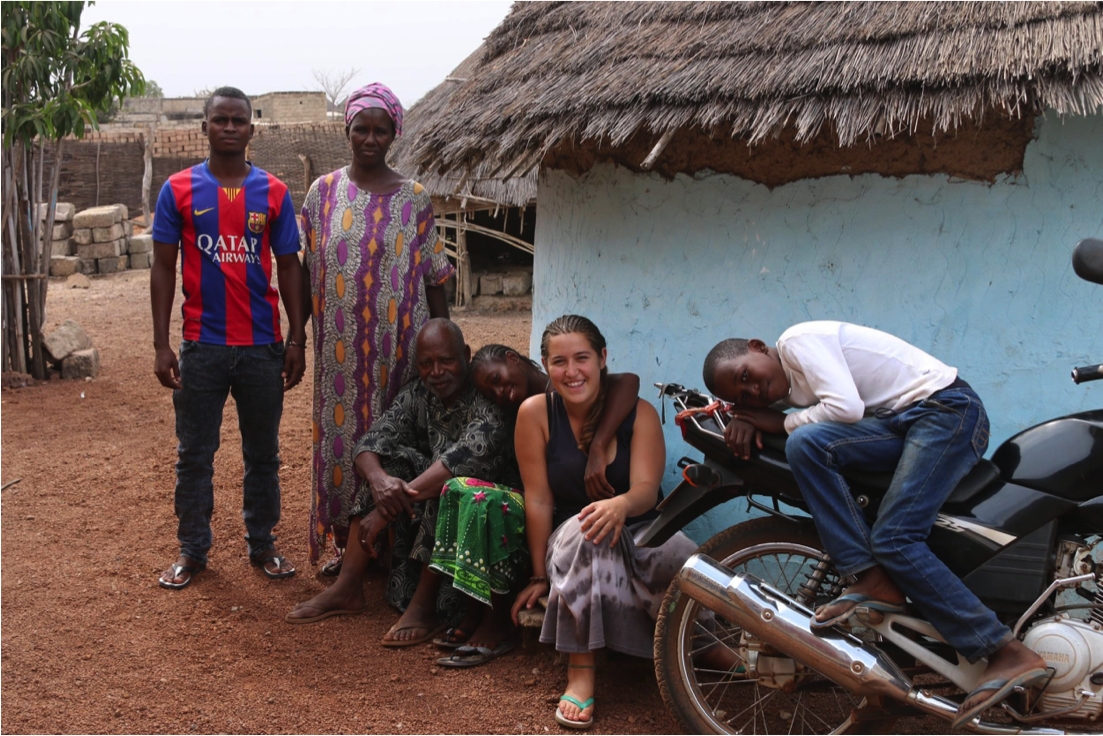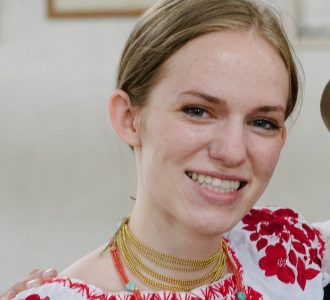Connection across cultures is a crucial component in fostering empathy on a global scale. As such, broadening one’s horizons and stepping out of your own experience is essential in order to develop empathy for others.
One way to achieve this goal is by diving head first into global citizenship. But what is global citizenship? What is a global citizen? And how do you become a global citizen? Let’s look into the answers to these questions, as well as some of the ways in which you can expand your global citizenship education.
GLOBAL CITIZENSHIP

Global Citizenship: What is it and how to become one?
Global Citizenship Definition
While it may mean different things to different people, the most common global citizenship definition is the idea that all people have civic responsibilities to the world as a whole, rather than just their local communities or countries. So, by expanding one’s personal horizons through global learning, you are able to effect change in a more meaningful sense on both a small and larger scale.
What does it mean to be a global citizen and how do you become one?
Global citizenship is more than a title — it’s a mindset. In the emerging digital world, the international community is getting closer and closer, yet if one chooses not to act, it’s easy to stay in a bubble. Ask yourself — what communities am I a part of? Your answers could include your home, school, work, or literal neighborhood — expanding that into the world community strengthens your global citizenship. In these “small” communities, you might exchange ideas with a friend or help out a coworker with a problem. Being a global citizen simply means having a willingness to do this with people from different nations and cultural backgrounds.
You may feel like you don’t have enough to offer. It’s tempting to think you have to travel to a new country every month or fight for social justice to define yourself as a “global citizen.” This misses the mark. The global citizen definition you should use is more about being connected and garnering an understanding of cultures beyond your own. This looks different for different people. What does it mean to be a global citizen for you? It could start with something as simple as researching a new country or making friends with an immigrant neighbor. It could end with traveling abroad and contributing to community efforts to advance education, health, or environmental conservation. Working to solve our shared global challenges is so important, and this drive to make a positive impact is most effective when it stems from the feeling of global citizenship and being a member of an international community.
How to Become a Global Citizen and Improve Your Global Citizenship Skills
When people make the decision to become global citizens, they have already made a step in the right direction towards expanding their global awareness, but there are some things — both small and large — that you personally can do to create global citizenship in your own life. Here are just a few.
Learn About the World
Even before you hop into international travel, there are ways in which you can learn about the world and become a global citizen. The internet is a wonderful resource that can help you do this.
One way to become more globally aware is by reading about different cultures and experiences. By reading blogs, articles, and books from people who live in other parts of the world, you can gain a deeper understanding of their lives and perspectives.
Another way to improve your global citizenship is by connecting with people from different countries and cultures online. You can seek out social media accounts of people from different countries and start conversations with them. You could also become an online tutor to young international students, helping them to learn your language and culture while learning from theirs.
By doing these things, you can get close to people from different cultural backgrounds and learn about the issues they face regularly. This can help you to explore things outside of your regular purview and become a more informed and compassionate global citizen.
Travel
One of the best ways to grow your global citizenship and become a citizen of the world is, naturally, to get out and go see it. Traveling to other countries can provide you with invaluable experience and education through interacting with other cultures. Transformative life lessons are often borne of these kinds of travel experiences, allowing you to learn about topics like global health, interdependence, diversity, social justice, and more through your lived experiences while abroad. That is why at Global Citizen Year, our Take Action Lab program provides an immersive gap semester abroad while learning from experienced human rights advocates advancing social justice.
Learn About Yourself
Being a part of any community involves giving and receiving. As you learn about the world, you should see some mindsets change, and you may discover new interests and causes to explore. Are you passionate about social or political involvement? Do you wish you could alleviate climate change? Do you have the skills to teach English online or help on an organic farm? Knowing what you care about and what you want to offer to the world will help you develop your own global citizenship. You’ll quickly find that you have something to offer — and the potential to make a positive impact.
Become a Leader
Leaders with more diverse life experiences, a global perspective, and greater empathy are desperately needed if we’re going to address issues like climate change, global health, and inequality. By working on cultivating your personal leadership skills, you may be able to contribute more to building a more sustainable, inclusive future. Developing your leadership skills can help you become the most impactful global citizen you can be and empower you to make a difference for the communities and issues you care about.
Benefits of Global Citizenship
Global citizenship has numerous benefits that extend beyond personal growth and development. Here are some of the key benefits:
- Increased cultural understanding: Global citizenship fosters empathy and understanding towards people from different cultures and backgrounds, leading to greater cross-cultural awareness and sensitivity.
- Improved communication skills: Being a global citizen requires effective communication with people from diverse linguistic and cultural backgrounds, which can help improve one’s communication skills.
- Enhanced problem-solving skills: Global citizenship promotes critical thinking and problem-solving skills, as individuals are exposed to complex global challenges and encouraged to come up with innovative solutions.
- Greater career opportunities: Employers increasingly value employees with global perspectives and intercultural competencies, making global citizenship an asset in the job market.
- Personal growth and development: Engaging with diverse perspectives and cultures can broaden one’s worldview and increase personal growth and development.
WHY GLOBAL CITIZEN YEAR?
Are you looking to connect with motivated young changemakers worldwide to develop the necessary skills for solving global challenges? With Global Citizen Year you have the opportunity to find your people, your purpose, and your power to make an impact.
Work with experienced human rights advocates addressing the global challenges that matter most to you during a gap semester in South Africa with Global Citizen Year’s Take Action Lab. Expand your global perspective and sense of purpose with our apprenticeships, cultural immersion experiences, and dynamic curriculum. Make friends and mentors for life and become part of a network of like-minded changemakers from across the world. Develop the skills, network, and insights to create a fulfilling and impactful future.
Ultimately, the effort you put into growing your global citizenship is something that will benefit both yourself and the people with whom you come into contact. Learn more about Global Citizen Year here.
“To me, a global citizen is someone who seeks to engage with and has great respect for communities that are very different than their own, whether those be actually international communities or even communities within your own — within your own country, that you are not very familiar with. The key components are respect and a willingness and in fact a desire to really engage with those communities, engage those differences, and learn from them and kind of revel in the differences that exist.”
Jordan Lee, Yale University ’17, Global Citizen Year Alumnus ’13
EXPERIENCE A DAY IN THE LIFE OF
A GLOBAL CITIZEN YEAR FELLOW
Fellow / Ecuador
— Anna del Savio
I work with a group of indigenous artisans that make fair trade jewelry.…
Fellow / Brazil
— Amari Leigh
After my community garden apprenticeship, I like to hang out at the local waterfall with my friends.…
Fellow / Brazil
— Basil Wiering
I often hail a rickshaw into various parts of the city to meet friends and practice street photography.…
Fellow / Brazil
— Fernanda Tornell
I've developed my public speaking skills and encouraged hundreds of people to take care of our planet.…
Fellow / India
— Luciana Ribeiro da Silva
I apprentice with Teach For India and also volunteer with a non-profit working to end child marriage.…
Fellow / Ecuador
— Noah Hapke
I co-teach English classes at the school in my community.…
Fellow / Brazil
— Sarah Murray
My apprenticeship is at a school for people with disabilities where I help to lead gardening, games, and capoeira.…
Fellow / India
— Alana Poole
In the afternoons, I often go on home visits to meet my students' families and understand where they come from.…








